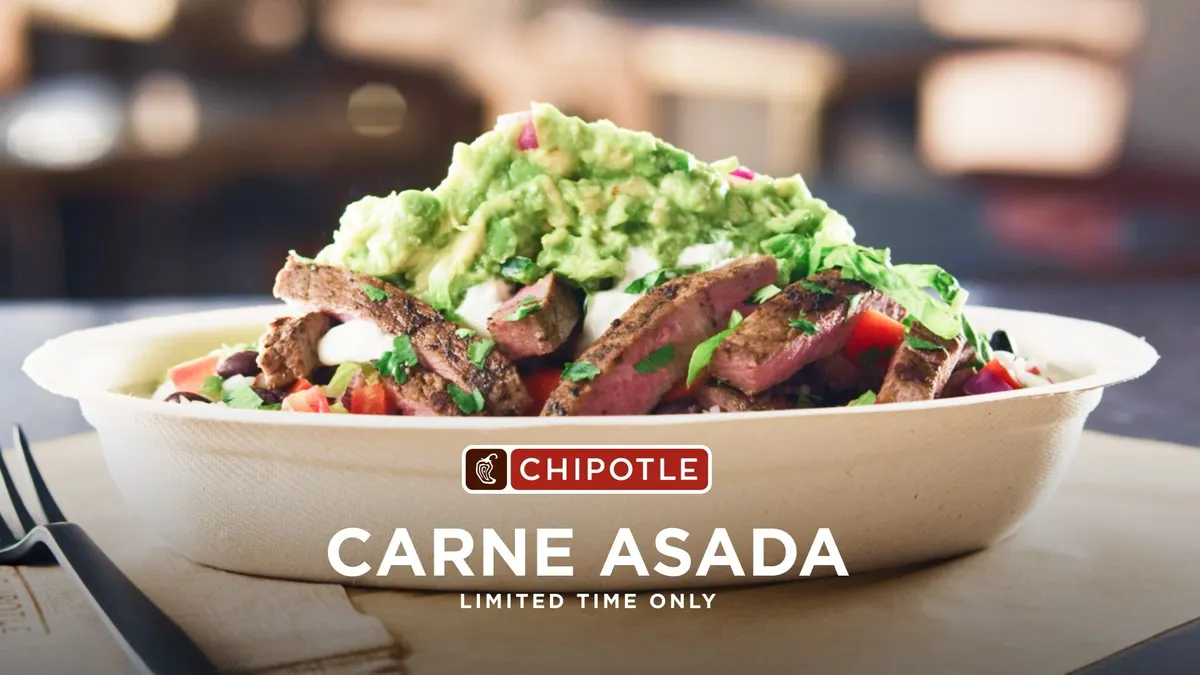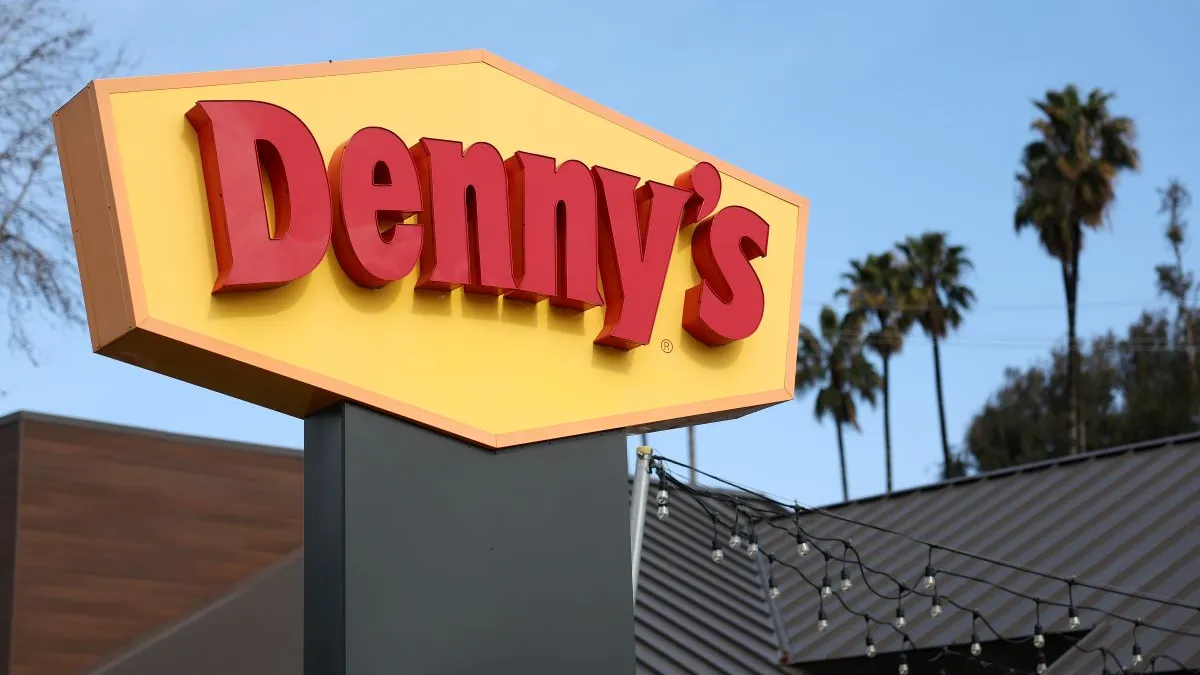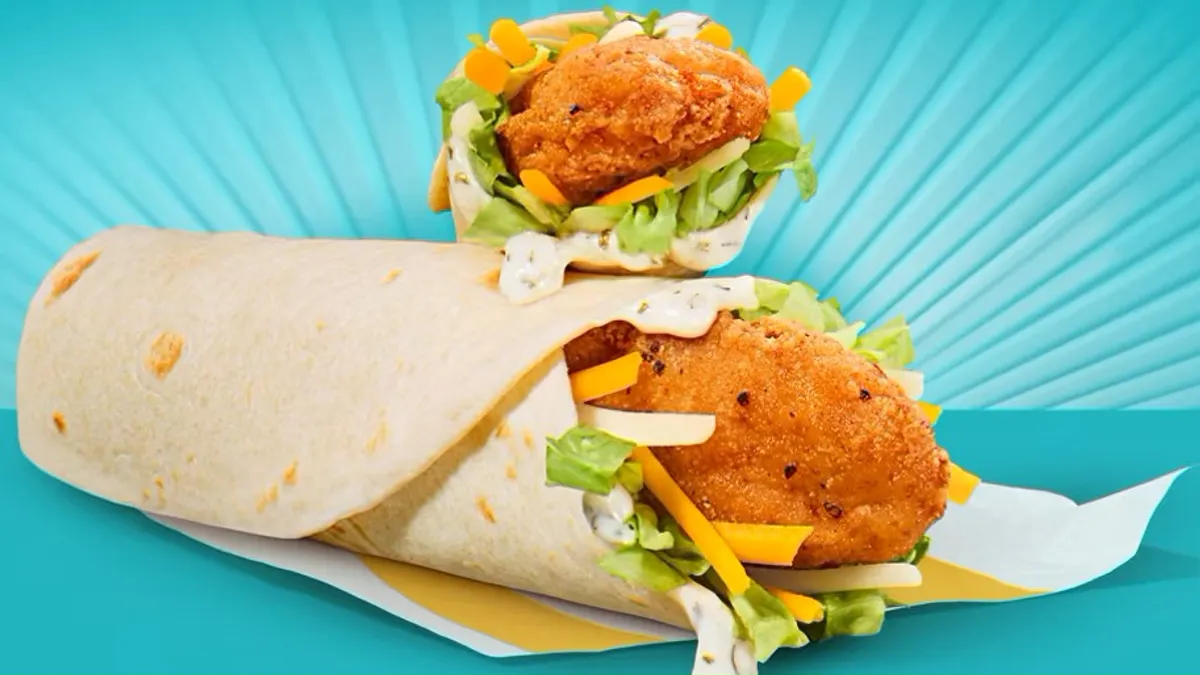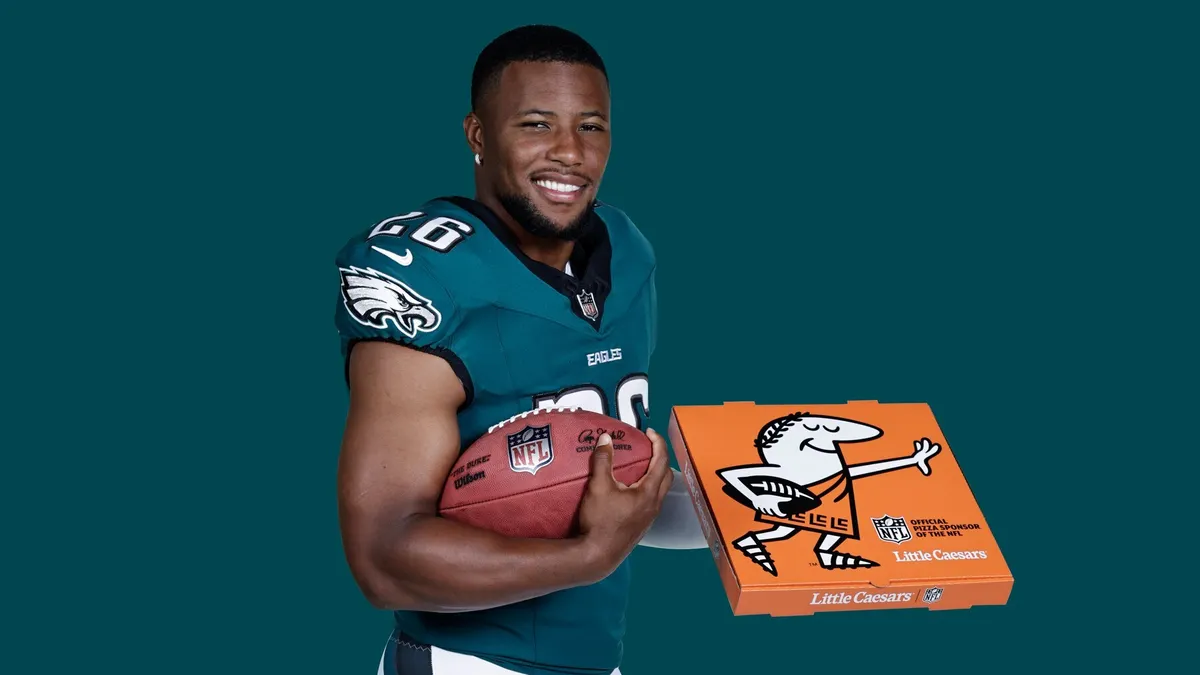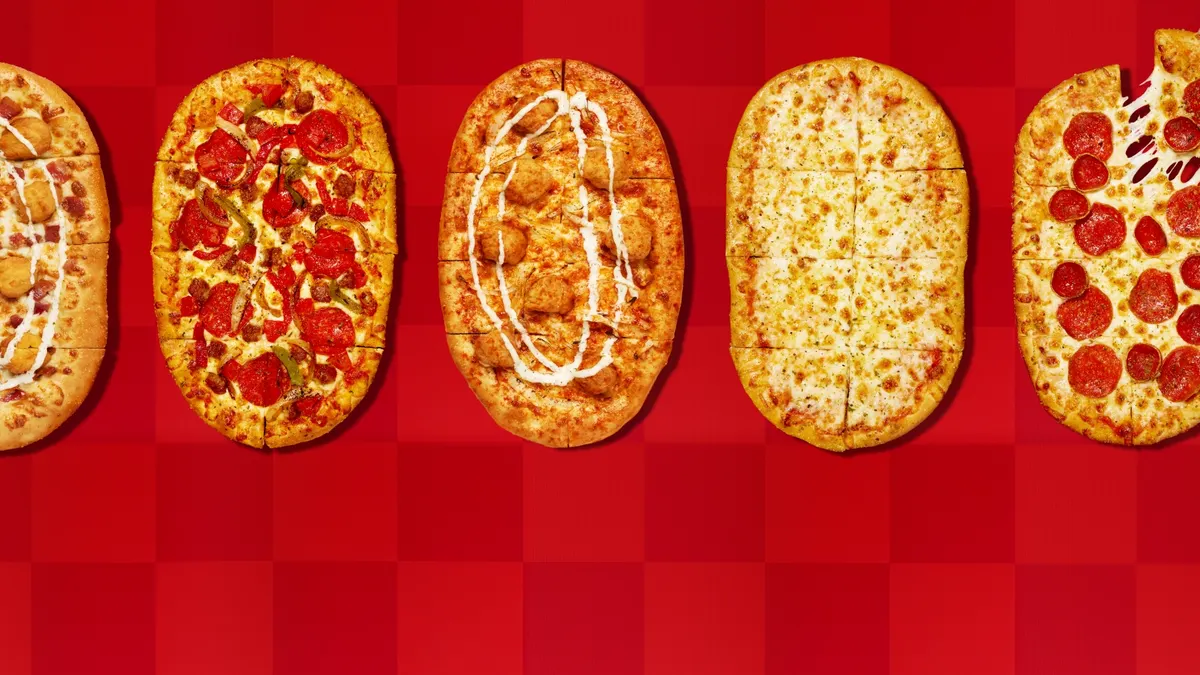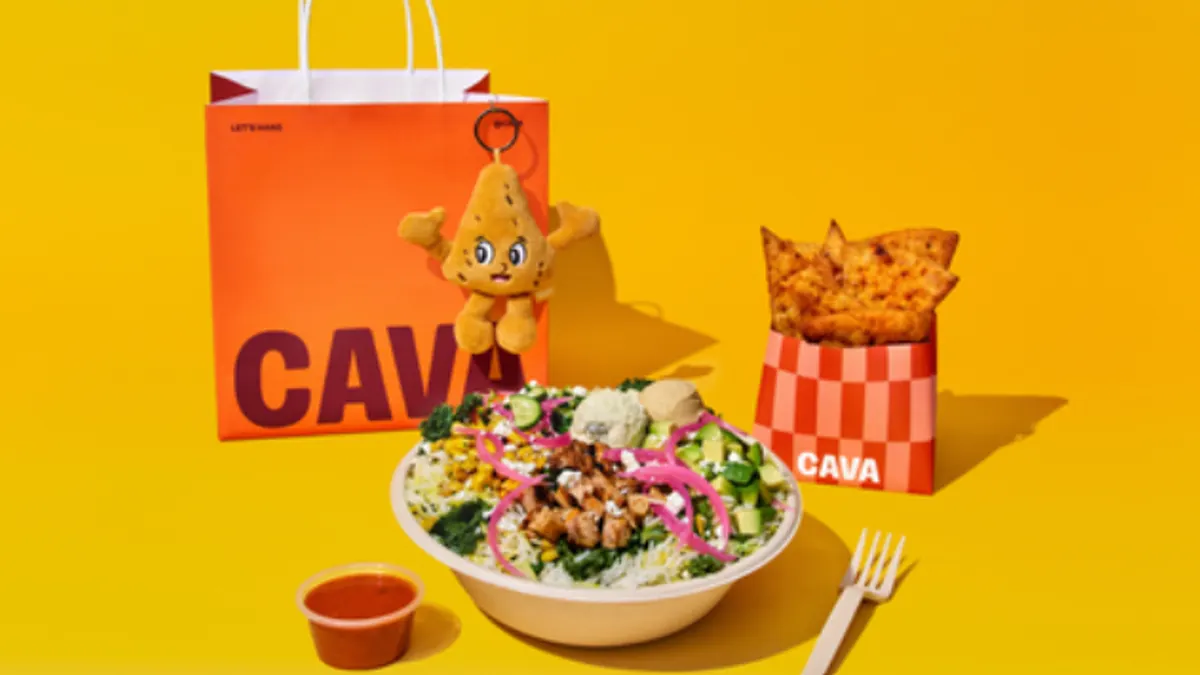Just a few weeks after warning of major shortages of the Impossible Burger, a vegan "beef" product that's become synonymous with the plant-based boom, Impossible Foods announced Monday that it's raised $300 million to accelerate its production.
The company has been struggling to meet massive industry demand for its proprietary patty since landing major partnerships with heavyweights including White Castle, Red Robin and most recently Burger King. The burger chain is planning a national rollout of the Impossible Burger, which will more than double Impossible's current restaurant count of 7,000.
"We have cracked the molecular code for meat and built an industry-leading intellectual property portfolio and brand," David Lee, chief financial officer for Impossible Foods, said in a news release. "Our global financial partners are supporting a technology powerhouse that will transform the global food system."
Lee also told Food Dive that going public is a possibility for the company, but that it is not announcing an IPO filing and is in no rush to do so.
The company reiterated its plans to add a third shift of workers and a second production line at its sole manufacturing plant in Oakland, California to get back on track. It is also searching for co-manufacturers to help produce its plant-based burger.
"There is no horizon where I think our growth takes a break. We'll be continuing to expand for some time. We have a long way to go before we're anywhere close to reaching [a saturation] point," Lee told Food Dive.
But despite promises of more supply, Impossible's independent partners — the restaurants that helped put its concept on the map — worry that these scaling efforts won’t reach them.
"Impossible has made it clear what their priority is, and the independent restaurateur that gave Impossible its initial exposure and support isn’t it," Dan Simons, co-owner of Washington, D.C.- based restaurant group Farmers Restaurants, told Restaurant Dive. "Their priority is clearly words like 'largest customer' and 'market share' and 'scale.'"
Simons' three high-end, farm-to-table restaurants, including Founding Farmers, Farmers Fishers Baker and Farmers & Distillers, all feature the Impossible Burger. However, with zero supply and no clear recovery date, he is considering reprinting menus without the item — a move that would cost him thousands of dollars.
"I'm just waiting for the cringe when the guest wants it and then they're disappointed," Simons said. "When I have to tell a guest I'm out of something it's a moment of truth that's negative… I don’t like being put in this position where hospitality drops."
For all restaurants, there are few alternatives
While Impossible’s major QSR partners can weather this period of low or no supply thanks to sophisticated supply chains and planning models, Specialty Foods Association president Phil Kafarakis told Restaurant Dive, small partners like Farmers Restaurants will bear the brunt of the shortage.
Simply swapping in veggie burgers to fill in the gaps is an option, but these products likely won’t offer the signature mouthfeel, sizzle and "bleed" that have made Impossible a hit with meat lovers looking to eat sustainably.
"I don't have the kind of tech to create this product that [diners] would love," Simons said. The Impossible Burger is one of the only products his restaurants do not make in-house, and the steady stream of customers asking for the menu item — once a welcome sales boost — has pushed the restaurant group to explore options with Impossible's industry rival, Beyond Meat.
The move wouldn't be surprising. Last week, Chicago burger chain Brgrbelly told customers it had no choice but to switch to Beyond Meat, blaming Impossible's lack of notice regarding the shortage.
Though the level of demand for "meaty" vegan burgers signals huge growth opportunity for additional manufacturers to enter the fray, with Nestlé and Tyson Foods scrambling to launch similar products of their own, Kafarakis said that it looks like restaurants will have to choose between Impossible and Beyond for the foreseeable future.
"They are meat analogs, so they've got proprietary claims on their processes and what they've pioneered," he said. "Knock offs are going to take a while… whether they have staying power or not will depend on how close they can get their proprietary products to meet the consumer criteria."
Aaron Allen, CEO of global restaurant consulting firm Aaron Allen & Associates, believes that this dynamic is what led Impossible to overextend itself.
"Investors would kind of push for a land grab, particularly between these two companies, to see who can lock in [big] accounts the fastest," he told Restaurant Dive.
But Allen said pursuing major QSRs right off the bat may have been premature. He said that typically major menu innovations perfect their model in fine dining over a stretch of years, which helps pricing, positioning and maintaining margins, before entering fast food.
Impossible also should have relied on more limited-time offerings as it established itself in the QSR channel, he said.
"Knock offs are going to take a while… whether they have staying power or not will depend on how close they can get their proprietary products to meet the consumer criteria."

Phil Kafarakis
President, Specialty Foods Association
"It's better to start with limited-time, or limited-supply offers … that give a sense of scarcity and novelty that could help reduce friction for everybody involved," Allen explained. "That’s something Impossible Foods and Beyond Meat may want to facilitate among their partner restaurants."
Though Beyond Meat has yet to suffer Impossible-level shortages, the manufacturer isn't out of the woods yet. When the company filed its IPO last month, a move that boosted shares a whopping 163% and brought its value to $3.77 billion, it detailed several production risk factors in its prospectus, including a lack of co-manufacturers and a limited number of raw materials and third-party suppliers. The company also experienced supply hiccups of its Beyond Burger in 2017 and 2018.
Beyond and Impossible won't be the only players on the hook for overblown partnerships, however.
"We've seen a number of [restaurant] CEOs lose their jobs over not looking at supply chain considerations and moving too quickly from a marketing point of view,” Allen said. He pointed to the case of Edna Morris, the former Red Lobster CEO who was fired after poor calculations made her all-you-can-eat crab promotions cost the chain millions.
But restaurants have survived similar ingredient shortages before, Allen said. In 2015, for example, Chipotle grappled with a shortage of antibiotic-free pork after the chain committed to using meat raised without drugs. Many U.S. farmers didn’t want to comply with Chipotle’s guidelines for raising pigs, which included letting the animals roam outdoors or keeping them in buildings with dirt floors. Ultimately, the Mexican chain turned to a British supplier with accommodating policies to boost supply.
Scarcity comes with opportunity and risk
It's unclear when Impossible's supply will be able to satisfy the demands of its ever-growing restaurant base, but in the interim, major chains face the same brand perception risks that independents are suffering, Allen said.
"Any time there's scarcity, it's the most powerful aspect of marketing," he said. "The fan base will search the product out, which is good for operators, but it's bad if operators are marketing [the Impossible Burger] as available [and] then they don't have it. That's the tricky part of the marketing here."
Allen said that for now, meat analogs are novel enough that consumers and major operators will be lenient with supply issues, but as their shine fades, frustration from both segments will pressure Impossible and Beyond to scale faster.
Still, Kafarakis views the overwhelmingly positive response to both companies value propositions as evidence of a bright future for the plant-based restaurant trend.
"... the period we're about to enter into is as significant [for restaurants] as the microwave oven."

Aaron Allen
CEO and chief strategist, Aaron Allen & Associates
"I think both companies are smart enough and their partnerships are interdependent [enough] that they'll figure it out… on both sides, not just on the companies sides but on the operators' sides [because] there's too much invested in this," he said. "The fruit of their labors is showing itself now — everybody's got to bet on them for the sustainability of the business model."
Allen agrees, and believes that Impossible and Beyond-style vegan burgers will eventually become a commodity.
“In the footnotes of the evolution of our food system, the period we’re about to enter into is as significant [for restaurants] as the microwave oven,” he said.
Though this timeline would eventually restore supply levels for independent restaurants, it's unclear at what point, or how many of Impossible's initial partners could walk away in the meantime. Simons, for one, says the shortage debacle has changed how he views Impossible.
"There ought to be a little honor," he said. "If all you're going to do is chase your biggest contracts when you can't fulfill orders for the people that got you there… call it karma, call it integrity, but you need to walk your talk, deliver on your promises and remember who got you to the dance."







